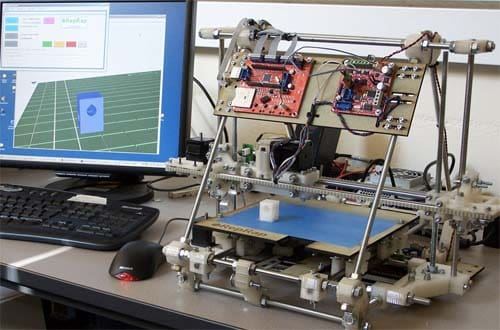A recent article at VoxelMatters, a 3D-printing publication, tells us about an effort to stop the 3D printing of firearms and firearms parts. 3DPrinterOS, a company that develops software to manage printers, worked with a university to develop algorithms that should identify gun parts. These could be used to make 3D printers than will stop print jobs if it appears that a weapon is being constructed.
“We believe that this collaboration will pave the way for safer 3D printing practices,” said Rene-Oscar Ariko, VP of Global Sales at 3DPrinterOS. “By working closely with the MIX Lab at Montclair State University, we can harness academic expertise to create a robust solution that addresses a critical issue in our society.”
While the article is short on details, largely because the collaboration is in the early stages, it isn’t hard to figure out where this kind of software might fit into the 3D printing ecosystem. That is particularly if you’re familiar with information technology, and then determine whether it would actually be able to stop people from making firearms like the FCG-9.
One place that the technology could be implemented is in the printers themselves. Akin to “smart gun” technology, a country or state could require that all printers sold or possessed be equipped with firmware that snoops the print jobs and halts any that might be weapon parts. This wouldn’t stop printing because existing printers wouldn’t be affected by import laws, and anyone could follow simple instructions on the internet to install firmwares from other countries that don’t have the anti-gun software included.
Software that looks out for gun parts could also be used on the internet for censorship. Websites could scan files looking for gun designs, and social media networks could scan images for discussions of 3D printing firearms. But, this is even weaker than printer-level censorship, largely because anyone can simply bypass such restrictions with VPNs, onion routing and dark web technology.
At the end of the day, it’s largely a fool’s errand to try to control the flow of information on the internet. Even the Chinese government recently tried to suppress news of a mass murder, but couldn’t keep the story bottled up for more than 24 hours! As is said in the movie Serenity, “You can’t stop the signal, Mal.”
Read the full article here


